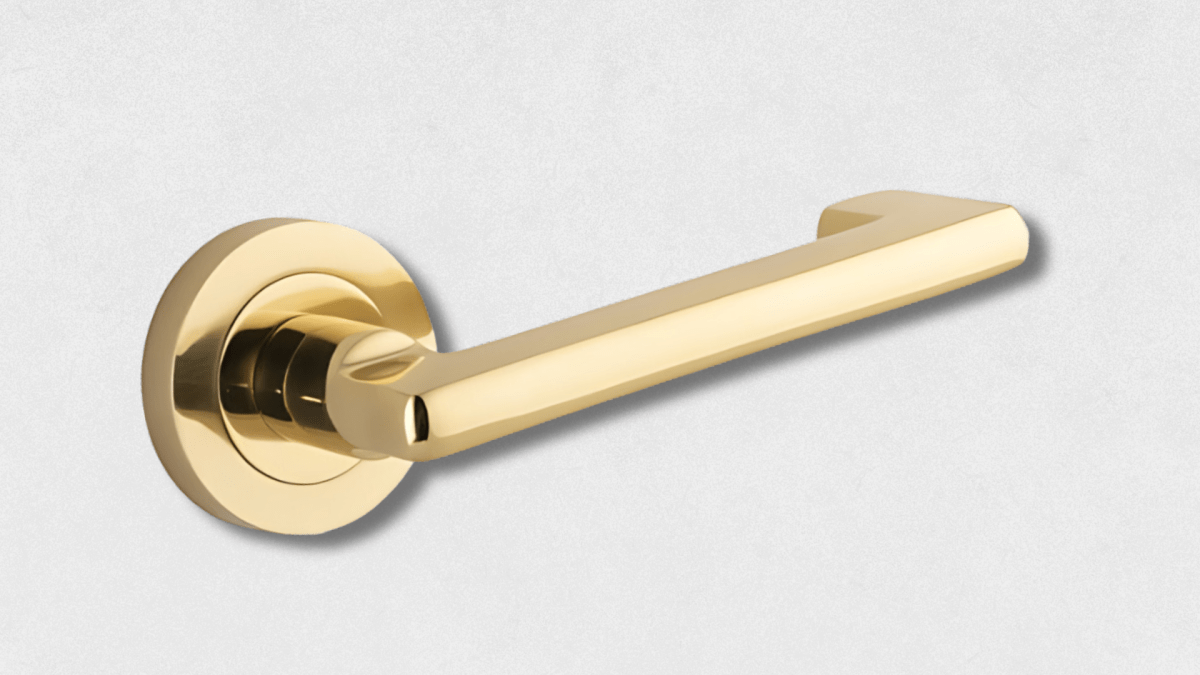Choosing the right architectural door hardware means knowing the differences between commercial-grade and residential-grade options. Both secure and improve spaces, but they are made for different needs. Here are the key differences to help you decide.
1. Fire Resistance and Safety Standards
A key difference is fire resistance and meeting Australian safety rules. Commercial-grade hardware is often fire-tested to meet these requirements.
For example, the Iver Baltimore Return and Iver Oslo Return levers are tested to last two hours in a fire, making them safer for busy areas. Many residential handles don’t meet these standards, so they aren’t suitable for commercial use.
2. Compliance with Accessibility Standards
Accessibility is important for both homes and businesses, but the rules differ. Commercial-grade hardware usually meets Disability Discrimination Act (DDA) rules, making it easy for everyone to use.
For instance, the Zanda Privacy Turn is practical and DDA-compliant. Many residential products don’t have these features, so they may not work well in accessible spaces.
3. Lock Mechanisms and Security
The locks used in homes and businesses are different. Residential locks often use deadbolts or euro cylinders, which are enough for home safety. Commercial locks, on the other hand, use deadlatches and oval cylinders because they are stronger and more secure. The Lockton Commercial Leverset is a great example of tough commercial hardware.
4. Materials and Durability
Commercial hardware is made to handle frequent use and is often built from stainless steel or solid brass, which last a long time. Residential hardware, on the other hand, focuses more on looks than strength. Products like timber door handles and timber handles add a natural touch to homes, combining style and function.
5. Aesthetic and Functional Adaptations
While residential hardware often focuses on style and blending seamlessly with interior designs, commercial-grade hardware balances aesthetics with functionality. For residential settings, timber finish and designs inspired by natural materials or natural patterns are increasingly popular.
These styles provide a natural feel, creating a connection to the natural world. In contrast, commercial-grade hardware prioritises durability and accessibility while still complementing modern design trends.
Recommended Products
For commercial projects, consider the following options:
Iver Baltimore Return: Two-hour fire tested and ideal for high-traffic areas.
Iver Oslo Return: Combines durability and compliance with fire safety standards.
Zanda Streamline: Sleek and robust for modern commercial applications.
Zanda Privacy Turn: Disabled-compliant, ensuring accessibility.

Lockton Commercial Leverset: Designed for superior security and heavy-duty use.
Watch Our Expert, Ben!
Not sure which hardware is right for you? Watch our Door Hardware Expert, Ben, break down the key differences between commercial-grade and residential-grade hardware. With years of experience, Ben explains what to look for and how to make the best choice for your project.
Conclusion
Choosing the right door hardware depends on the specific needs of your project. For commercial spaces, prioritise fire resistance, accessibility compliance, and durability to meet regulatory standards and client expectations. Residential projects, while focused on aesthetics, can benefit from understanding the advantages of commercial-grade features. Incorporating timber door handles or simple designs inspired by natural selection can enhance the natural feel of residential spaces, providing a timeless appeal.
At Entry Point, we specialise in high-quality architectural hardware, including an extensive range of commercial-grade options from trusted brands like Iver and Zanda. With quick shipping and a commitment to excellence, we are your dedicated partner in delivering solutions that meet and exceed expectations. Explore our range today to find the perfect hardware for your project.








